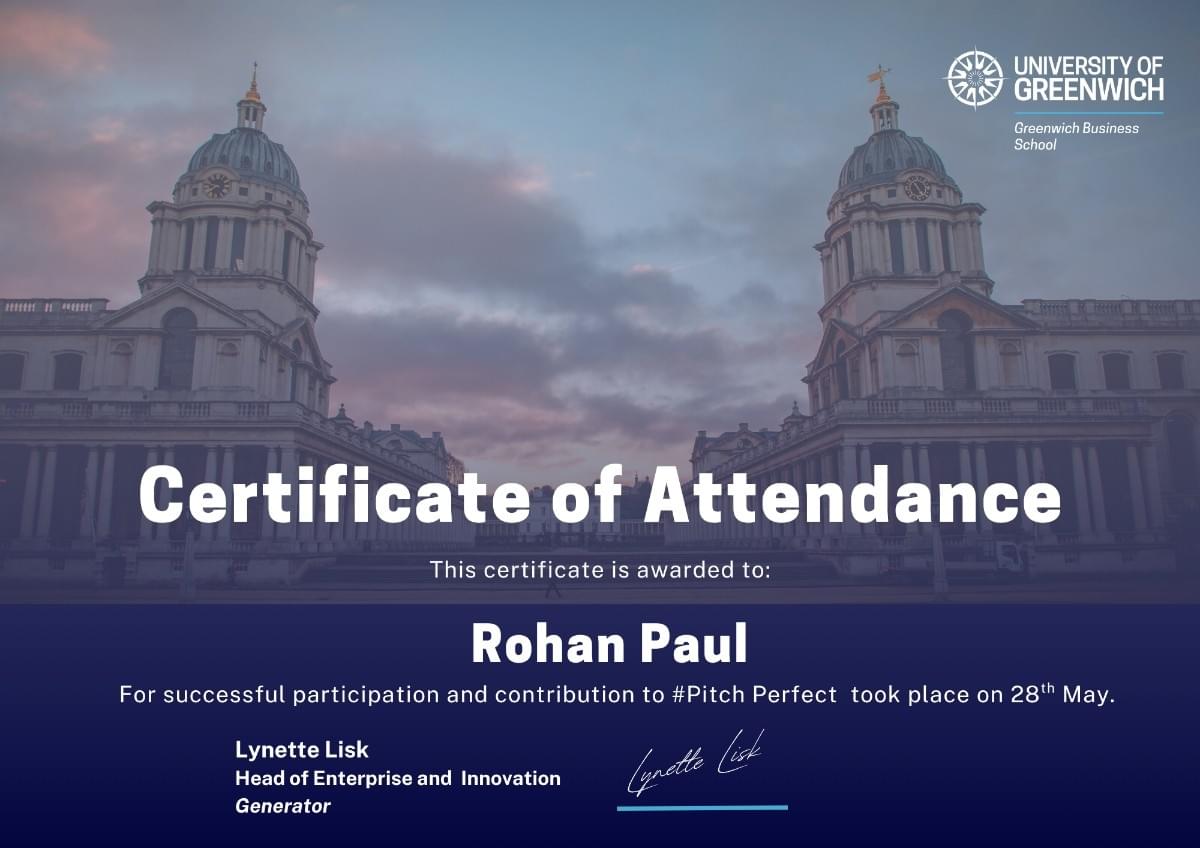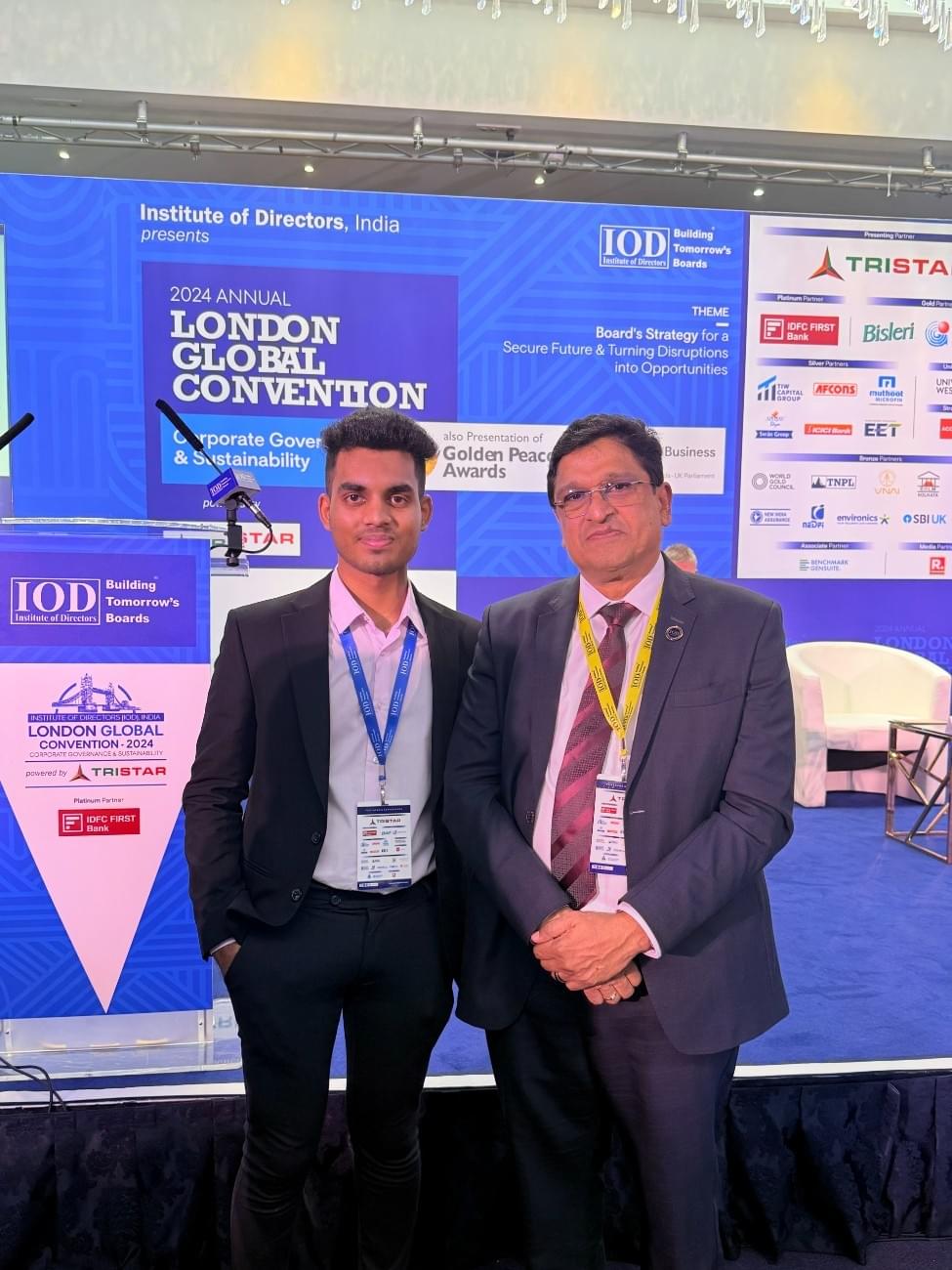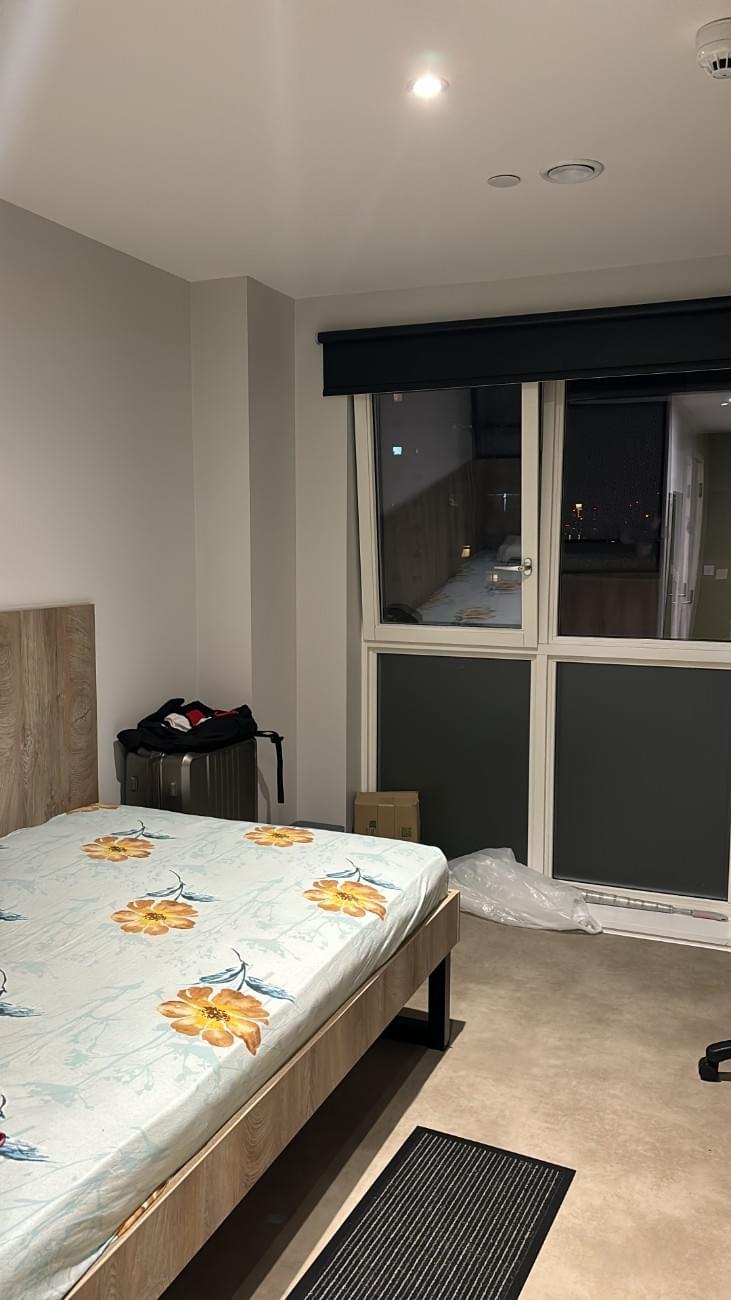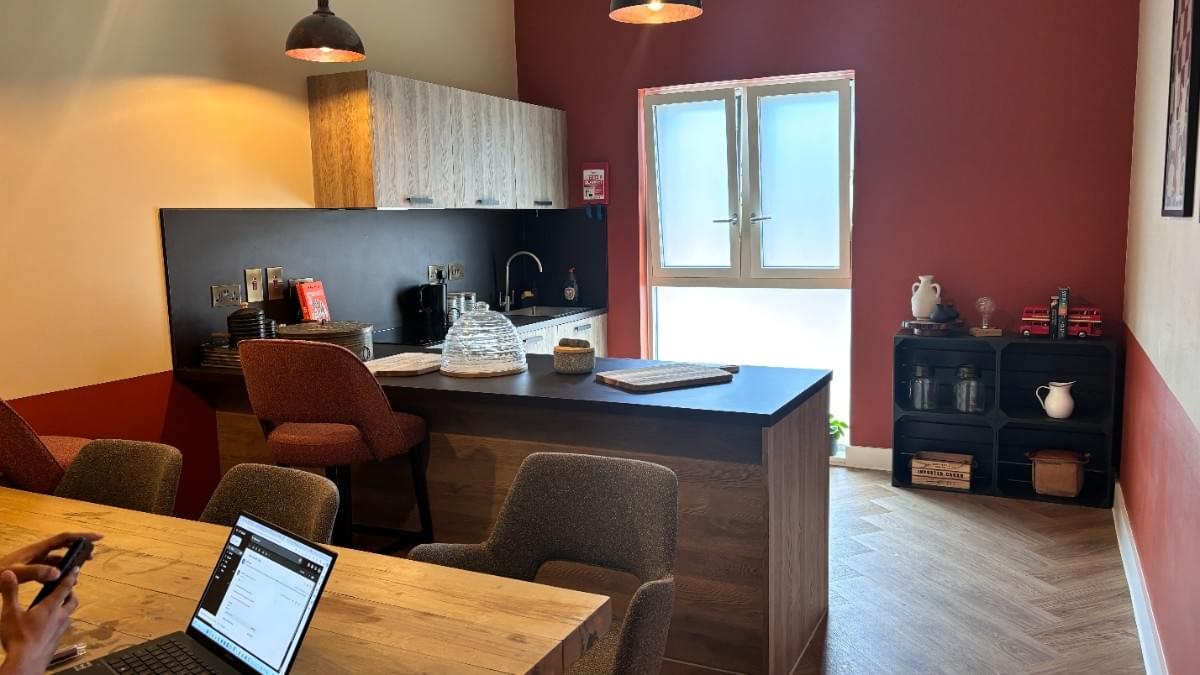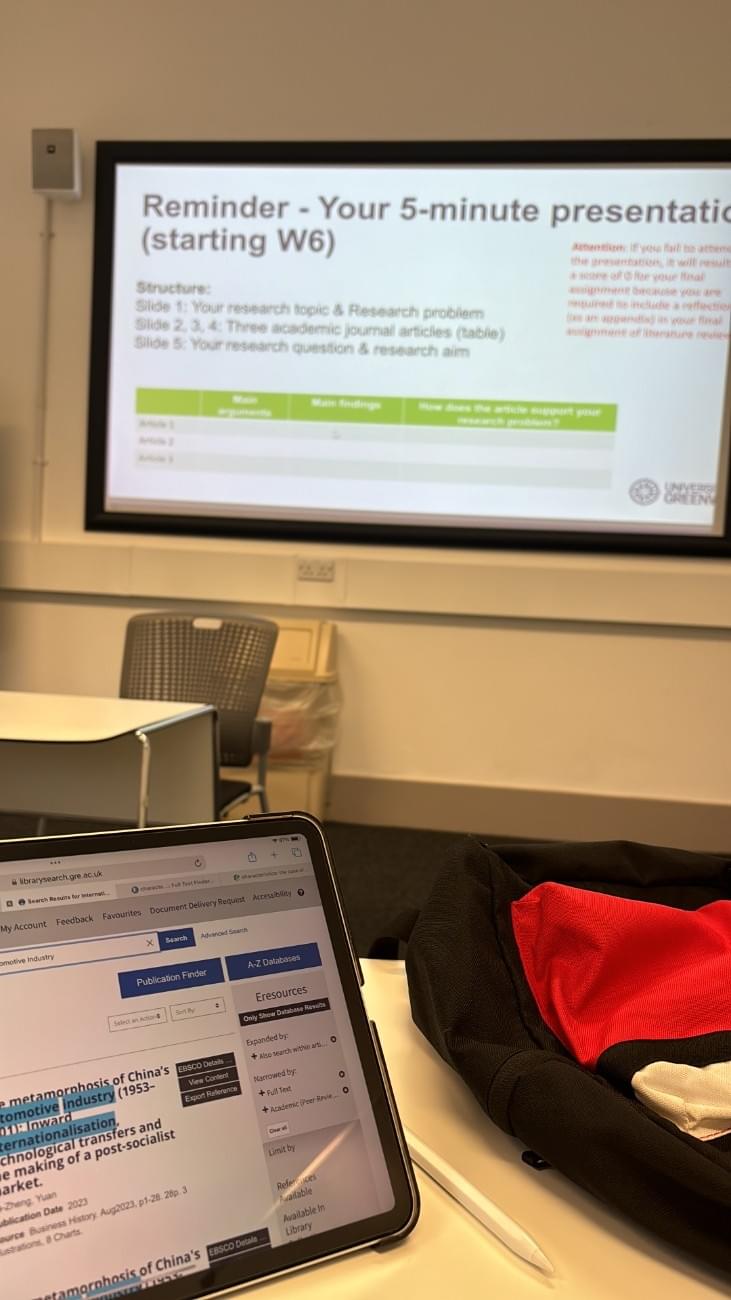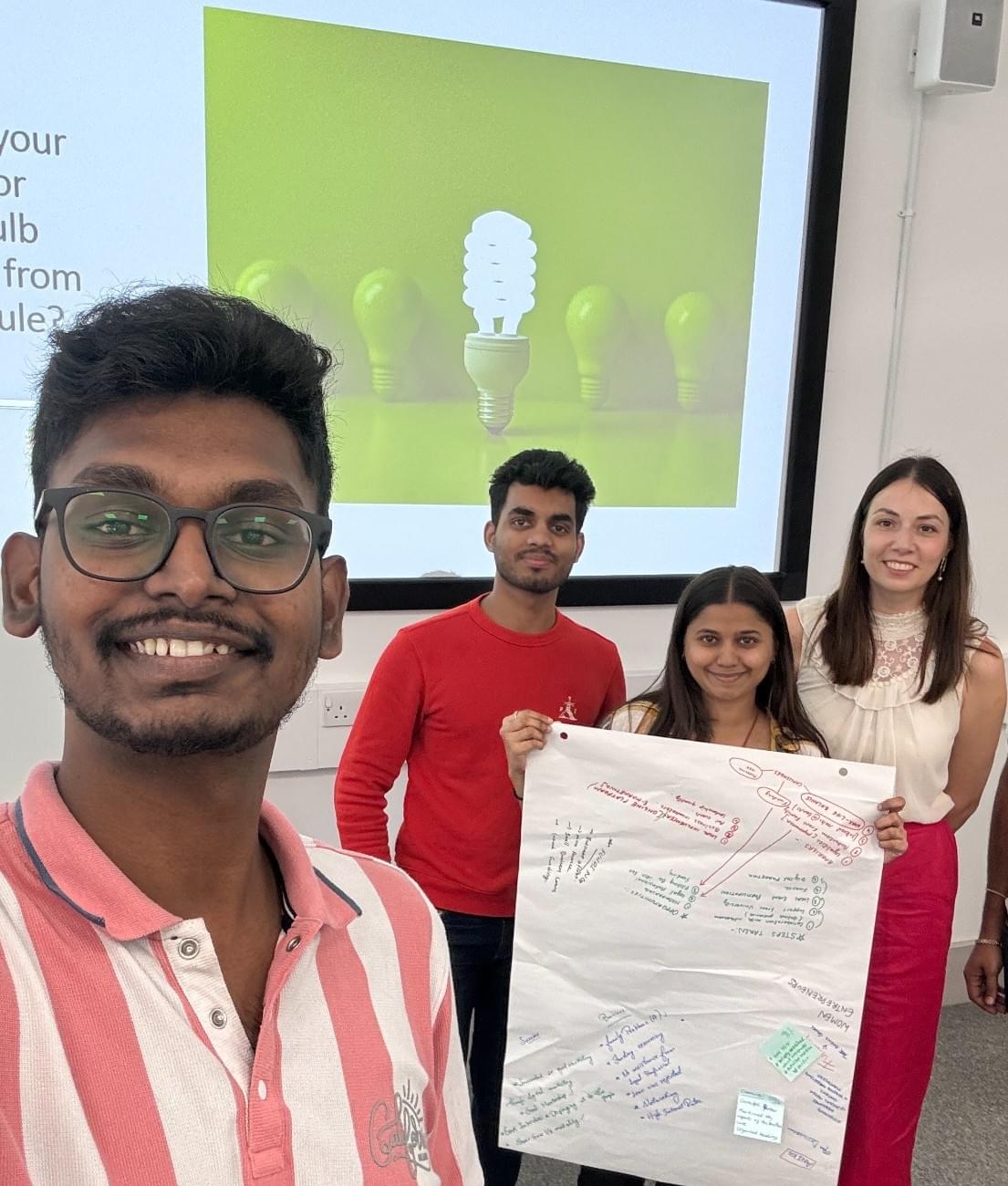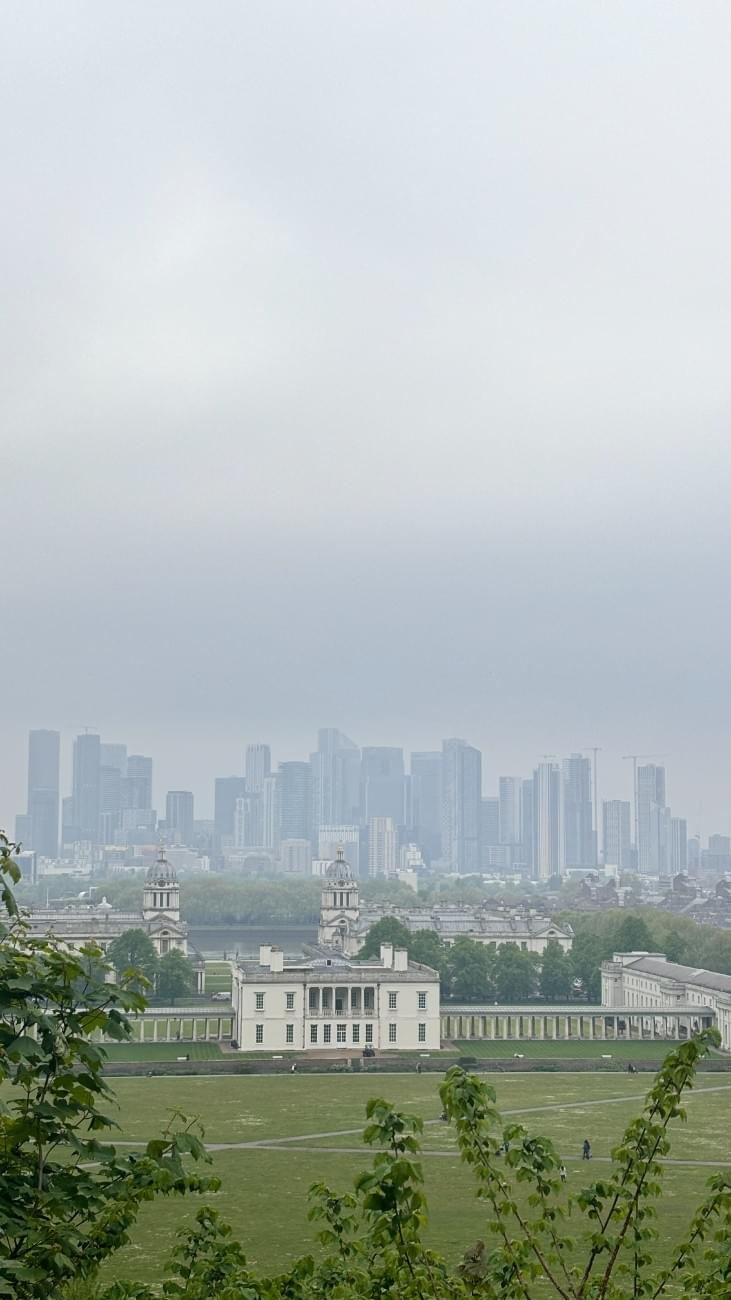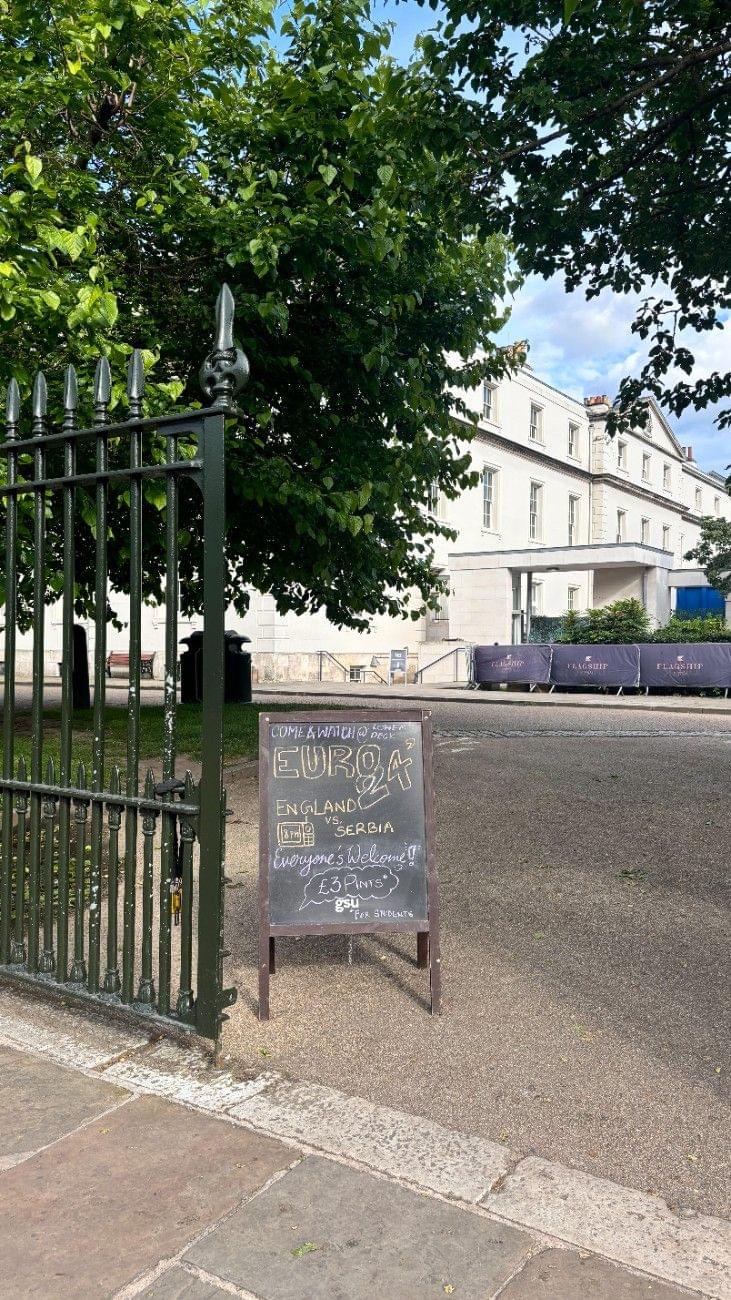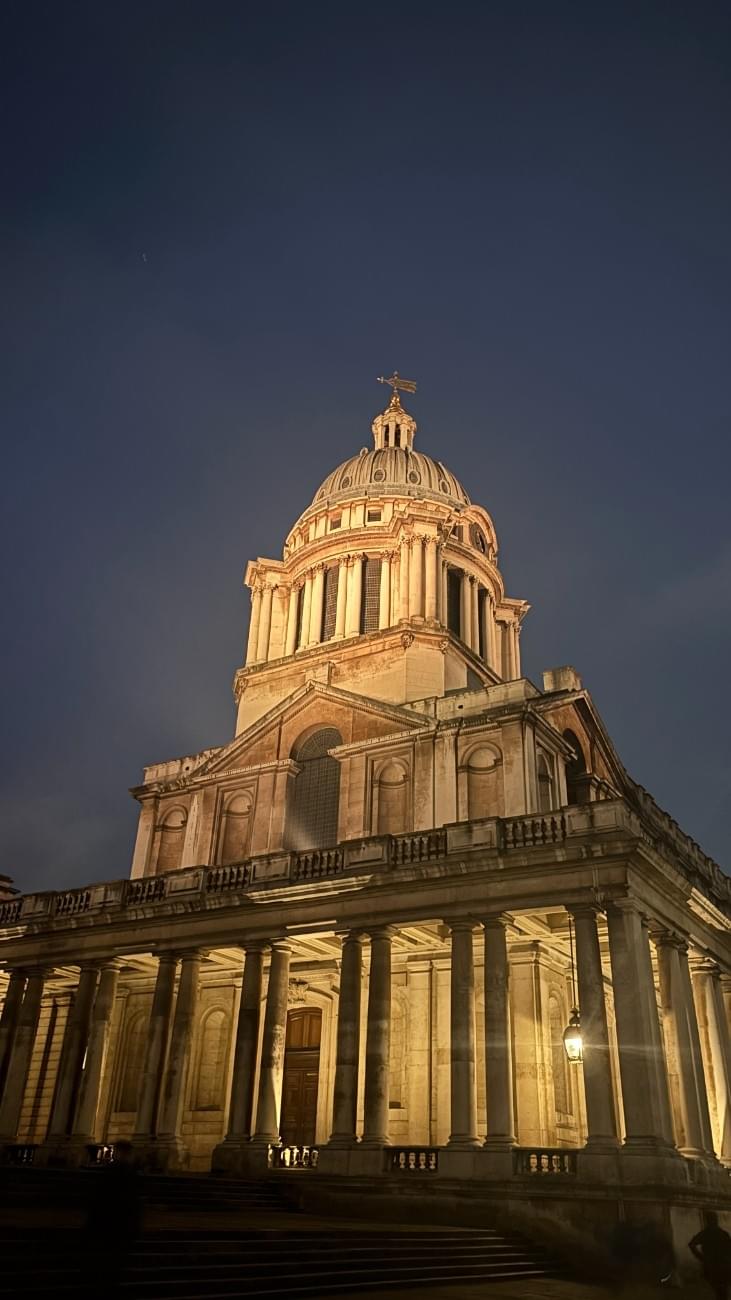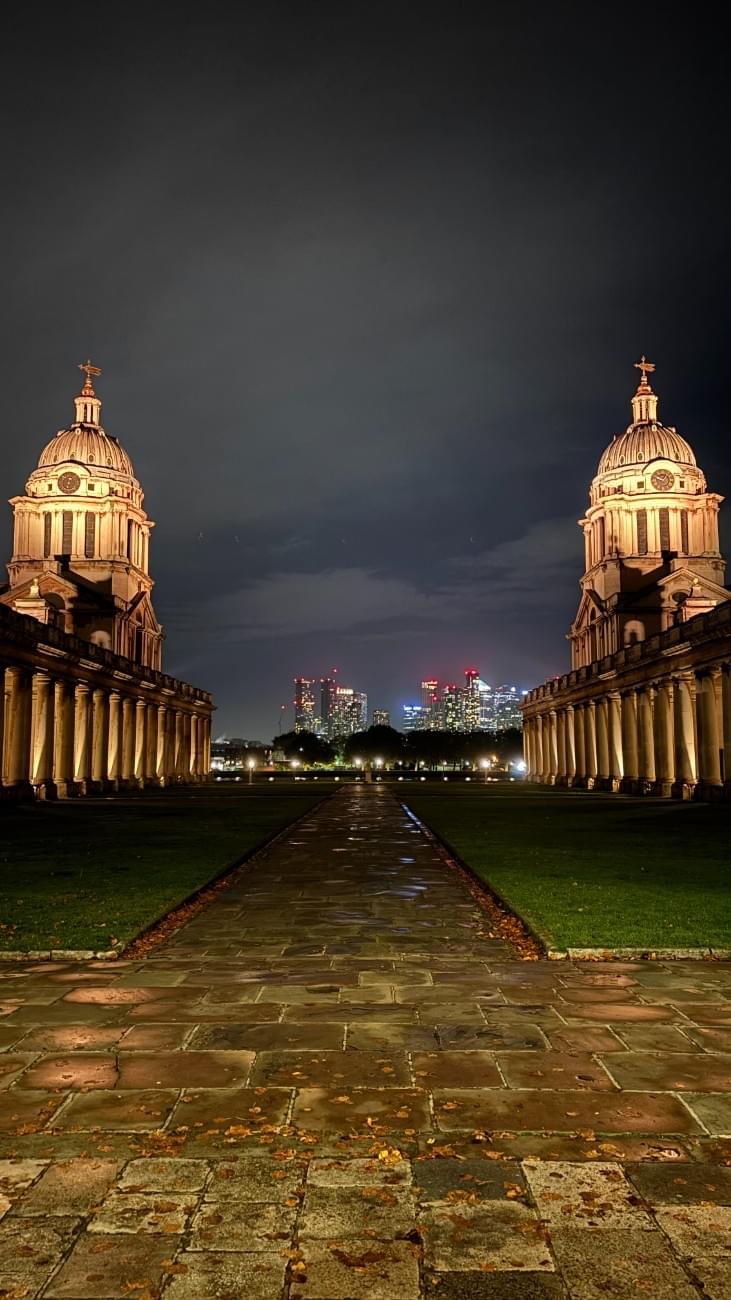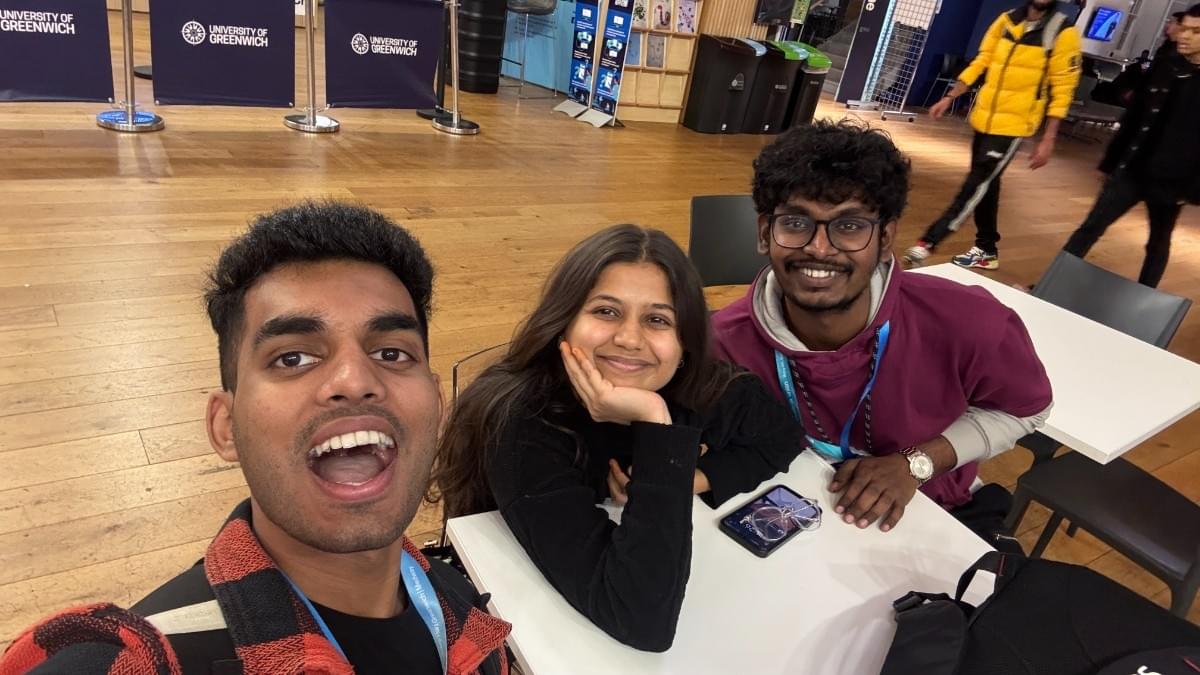What Students Say
Likes
- Support:- We all know that studying abroad can be daunting. Here, you're not moving from Bangalore to Hyderabad. You are literally changing countries- changing what you eat, when you sleep, and how you study. And such cultural shock can rob off a person's energy. Not to mention the intense homesickness that comes with it. In times like these, the Student Support and Greenwich Business School seems like a god send.
- For example, I still remember my second day in the UK, when I didn't even know how to use public transport and had to literally walk 2 miles to the University. I didn't even have an active UK number at that time. And unlike other Universities who only provide academic support, Greenwich Student support gave me a blueprint on how to get along in the UK.
- Curriculum:- How could I not mention how different studying in the UK is, in a good way of course! Unlike India, most UK Universities do not have a fixed syllabus, i.e., you are not limited to studying a particular book for a particular subject.
Dislikes
- Course Structure:- While the course itself is great with an immaculate curriculum, it is the way the modules are distributed that hinders one's ability to grow. The MBA course I studied is a 2-year course. Generally, all UK Masters courses are 1 year long, however mine had a sandwich year after that. In the Sandwich year, commonly known as a Placement Year, one is expected to find and complete a 40-45 week long placement, before they graduate.
- Finding a job in the UK isn't as difficult as they say on the internet, but the caveat here is compliance. My course has a detailed checklist on the type of job permitted as placement. For example, I could only do a job on fixed-term basis and not permanent. From my own research, I found 3/4 of all jobs in London to be permanent contract. This makes finding a placement extremely difficult.
- Personally, I feel it would have been better if it was a 1-year course instead, which would have facilitated better flexibility to pursue a career that one really likes, and not one that UKVI allows.
Course Curriculum
- I would rate the difficulty level of my course curriculum 7/10. The difficult part of the course is assessment. The main challenge is to be able to write 2000-3000 words per assessment.
- Anyone who has strong writing skills, grammar and storytelling would fare well in this mode of learning. The only written exam in a hall happens at the end of Term 2, which in my case was Cost Accountancy.
- The academic year is divided into 3 terms, with the main lectures and tutorials happening in terms 1 & 2. Notable modules/subjects included Global Strategy, Global Sustainability, International Entrepreneurship, International Economics & Innovation, Foundations of Scholarship and my favourite, Managing Across Cultures.
- Year 2 is a Placement Year in which students have to write a 15,000-word project, an amalgamation of Job Search Reflection, Critical Incident Report and Placement learning.
- The most positive aspect of the course is that it allows an individual to hone their people skills and overcome stage fear, as they would have around 10 presentations in total (a mix of group and individual presentations).
- In terms of classes, lectures are held on Mondays and Tuesdays and are in online mode only. The last 3 days of the week are kept for tutorials, and this provides students with the opportunity to interact with their tutor and other students in their class. Class timings vary throughout the week, ranging from morning till late afternoon.
- The strength of my cohort was roughly 180 students, divided into sections. Each section would consist of nearly 10-12 students, which translates to a good faculty-to-student ratio of 1:10.
- My cohort, and in fact Greenwich itself, is swamped with Indian and Indian-origin students. I would estimate nearly 80% of my batchmates to be Indians, which is a staggering figure. Fun fact: the President of Greenwich Students' Union is an Indian.
Admission Experience
- My original intention was to do an MBA at a credible University in India. However, during my quest to find a good university, I realized how inefficient the whole process was. Doing an MBA in India would require me to appear for CAT. On talking to my friends who had already attempted CAT, I understood that I would need almost a year to prepare for the exam. I did not want to commit so much time to my academics. At this exact moment, I saw a dramatic SP Jain Global ad which had great claims. My entire MBA journey pivoted at this point. I started considering an MBA from abroad. From here onwards, this is how how my journey looked:
- October 2024
- SP Jain Global (Admitted, later withdrawn voluntarily to seek better options).
- December 2024
- Coventry University, London (Shortlisted and received confirmed admission form, later withdrawn to seek a better option).
- Anglia Ruskin University (Shortlisted).
- King's College London (Rejected. Reason: lack of 3+ years of continuous work experience.
- January 2025
- University of Greenwich (Admitted in April 2024 cohort)
- Choosing the right University was absolutely essential, as my entire career depended on it. In today's day and age, where marketing has become very personal, one cannot just rely on google to find the right university. This is why, before putting my money on a UK University, I conducted my own research, read reviews like the one I am writing currently, and connected with people through LinkedIn to draft the real picture.
- The website of SP Jain global seemed very promising to me with jaw-dropping graduate placements listed. However, on digging deeper, I found out that their UK campus was very newly opened and I would be a part of the first cohort. This did not inspire much confidence in me and I ultimately dropped the plan to study.
- However, I made up my mind to study in the UK. I knew London, being a financial hub of the world, would open up endless possibilities for me. I therefore started looking at other options. The first Universities that came to my mind were of the Russell Group (London School of Economics, King's College, Imperial College, UCL and a few others). Now surprisingly, some of these top Universities and in fact, most other Universities did not require GMAT or any other exam except IELTS for admission. However, what they need is 3+ years of work experience, which I did not have as a recent graduate.
- I started searching for the next best Universities and names like Greenwich, Anglia Ruskin, Cardiff and Coventry popped up. Thankfully, I am privileged enough to have a relative living in the UK who helped me apply to all these Universities. Responses from these Universities can be time-consuming, and in a bid to utilise this time, I did my IELTS preparation during this time. The minimum requirement in UK universities is IELTS 6.0 and I scored 7.5 in it. By January I received responses from Anglia Ruskin, Coventry and Greenwich. I rejected the former two because they did not align with my expectations. From my research, I found Coventry to be good for humanities and Anglia Ruskin had a lacklustre communication. I found Greenwich to align well with my expectations, as it had a proper business school within it.
- The Admission Process: To start with, I had to upload all my documents, which included a school passing certificate, a graduation certificate, an IELTS Result and a letter of recommendation from Professor. This took a week or two as they normally ask to make some changes. CAS is the most vital part in the admission process of a UK University. CAS is one's licence to study in the UK. And it can be challenging, as the UK Authorities not only check your academic background but your financial background as well. I had an interview with Greenwich Business School during this time. They verified my financial background to check if I could provide for myself in the UK. Finally, after a long haul of more than a month, they finally issued my CAS number, which allowed me to move to the VISA process.
- Regarding challenges, UKVI requires a bank statement showing an account balance of one year's living expenses parked in the bank account for at least 28 days. This can be challenging, as 14 lakh INR is not a small sum for most middle-class families. Documents need to be spanking clean, as any minute errors can result in a rejection of VISA. Finally, at the end of the process, there is a final interview taken by the UKVI through VFS Global before they issue a VISA.
- I had initially applied for the January intake; however, since formalities take time to be completed, I was moved to the April intake.
- Admission process can take as long as 3-4 months, subject to fluent communication, so it is always better to keep checking the admission dates and apply early to eligible for any bursaries or discounts. For example, in my case, my application process started in late December 2023 and my first day at University was on 24 April 2024.
Faculty
- As mentioned earlier, the faculty-to-student ratio of our cohort is roughly 1:10, which helped facilitate healthy communication between Professors and students. Tutors were excellent listeners, which is a rare quality to find these days, and preferred not to be addressed as "Sir" or "Ma'am", the whole idea being teachers and students work together to achieve results and adding connotations would breed hierarchy.
- The teaching methodology at Greenwich is termed as "Student-led learning", which is a highly flexible mode of learning. All learning material is delivered in online mode through Moodle. Even assessments are uploaded through the portal. There are concrete topics but no fixed syllabus, allowing students to explore their potential and scope of syllabus while interacting with their faculty.
- I genuinely admire every faculty member I met during my time on campus, but the one person who left a lasting impression on me was my Global Sustainability Professor. He is a 40-ish-year-old man who I could spend hours listening to. Although he was responsible for teaching just Sustainability to us, his knowledge about AI was astonishing.
Campus Life
- Greenwich mainly has three campuses: Old Royal Naval College in Greenwich, Avery Hill and Medway.
- I am situated in the main campus, in Greenwich. The campus has its own library known as "Stockwell Library". It is a separate three-storey building with a helpdesk to navigate shelves and plenty of study rooms available to book through the University website. Although the campus itself is huge, unfortunately there is no sports facility on the campus. All sports activities happen at the Avery Hill campus, which is one hour away from Greenwich.
- Our campus is divided into multiple buildings, with each one serving a specific purpose.
- Having worked as an F&B Team Member at the University Pub "Lower Deck", I actively contributed to major events. The events included "Bollywood Night", "Wavey Wednesday" and "Oktober Fest", to name a few. Located by the riverside, the scenic campus frequently becomes home to numerous movie shoots.
Part Time Jobs
- I only knew two people from our senior cohort who secured a Teaching Assistant (TA) position. One of my batchmates secured a Marketing Assistant role on campus as their placement.
- All jobs in the UK now pay at least the National Minimum Wage (NMW), which is 12.21 GBP per hour at the moment. As far as I have seen, in-campus job roles such as TA and DA normally pay an edge over the minimum wage in the range of 13-17 GBP per hour, which can translate to above 25,000 GBP/year.
- There are plenty of part-time job roles available to students throughout the year, the most common of which is Student Ambassador, who helps in cross-communication between students and the faculty. Apart from Student Ambassador, there are other roles such as Food and Beverage Team Member (the one I secured), which could include working as a bartender and learning stage lighting and kitchen. Some of my friends junior to me also secured the outreach ambassador and library assistant roles as well. All these roles typically pay between 13-15 GBP per hour.
- The maximum allowed hours per week for students is 20 hours. However, students are allowed to work full-time during holidays or in their out-of-term time.
- There are part-time roles available across London's supermarkets as well, especially during Christmas holidays when large retail chains require an additional workforce. However, it is always easier to secure a part-time role on campus, as the competition is not as fierce as off-campus. Off-campus jobs can sometimes be difficult to secure, as there is a lot of internal hiring in London.
- Choosing where to work part-time is more about the availability of vacancies than preference towards a particular field. The Hospitality Industry, being a people-intensive industry, has positions available throughout the year. Like I mentioned before, the National Minimum Wage in the UK is 12.21 GBP per hour, which means anybody aged 18 or over, including International students would earn at least this wage or above.
- While juggling between job and studies can be overwhelming in the beginning, it eventually becomes easier when you have worked a job for a couple of months. The application process for part-time jobs is pretty standard and similar to a full-time job application. One needs to submit their CV and preferably a Cover letter in the job posting. It is always a good idea to apply for jobs through the official company website rather than
Placement
- Although unaware of statistics and numbers, from what I have seen, heard and experienced, the percentage of people securing full-time employment within 6 months of course completion is not very confidence-inspiring. Most people turn their part-time job into full-time after graduation. This is why working part-time during University is so important. The average salary range that most students in my programme can expect to earn is between 25,000 and 28,000 GBP a year.
- Students usually find jobs through official company websites or by utilising their network. I know a few friends who secured full-time jobs by attending networking events at the University. Personally, I secured my second part-time job by reference from an acquaintance who works at a prominent health retail store in London.
- The placement experiences of my batchmates are not very promising either, as they would frequently report a lack of satisfaction and purpose from their jobs. 3/4 of batchmates joined the hospitality industry as Guest Service Assistant. Only a handful managed to secure placements in retail, and that too by converting their part-time to a placement.
- The only company that hired multiple graduates from my programme is Z Hotel, a fairly modern hotel chain with 3-star and 4-star properties in prominent locations such as Central London.
Accommodation
- I found my accommodation in London through a website called "University Living". I got myself an en suite bedroom in London Zone 2, for roughly 800 GBP every month.
- The best part about living in the accommodation was its brand-new construction. The entire building was newly constructed, which meant I was the first person to live in my room. The renting company "Your Tribe" offered free Wi-Fi, a games room, a house party every month, and most importantly a gym. The reception was open 24 hours to ensure security at all times.
- Thankfully, I did not face any challenges while looking for accommodation in London, as the entire process was frictionless. The only caveat was I had to pay my entire rent of 5 months in a lump sum. However, the staff was very welcoming and I even made some great friends at the building.
- If budget permits, I would totally recommend Chapter living or University Living for students seeking accommodation in London, as they not only provide great rooms but also a community to build connections with.
- The University of Greenwich is 2 miles away from the accommodation I lived in. The accommodation is situated in South Bermondsey, Southwark. I knew other people from Greenwich who stayed in the same building. However, most of my friends opted for the University Accommodation although they moved to other places later.
- Note: I lived in this accommodation for 5 months. Currently, I live in East London with my sister and brother-in-law. I am attaching the pictures of the accommodation below.
Exams
- As mentioned earlier, the University of Greenwich and most other UK Universities barring some Russell Group-tier ones like Oxford, only require IELTS and a good academic track record to be eligible for admission.
- To complete the admission process, of course, one needs to prepare a plethora of documents which show a proven track record. Firstly, a school passing certificate (Known as A-Level in the UK), Graduation Certificate, a Letter of Recommendation from the HOD or Senior lecturer at College, a Statement of Purpose and a CV.
- Yes, I had to appear for two interviews, from the University and UKVI, respectively. Both interviews were pretty straightforward with a particular emphasis on clarity of thought and whether one is able to express clearly and, more importantly, be able to provide for themselves. The UKVI interview only checks whether one is clear about their decision to study in the UK and their financial background-related questions. Both interviews started with the standard "tell us about yourself" with an aim to understand future goals.
Fees
- The total fees for my MBA International Business course were 19,925 GBP. Now, as per the UKVI regulations, in order to receive the CAS number, 50% of these fees have to be paid before attending University. The rest, 50%, can be paid in three equal instalments within the first six months of joining University or alternatively be paid in a lump sum with a 2.5% discount.
- The University does have its own accommodation facilities; however, I found myself a room for a better price. A person would normally be looking at spending around 800 GBP (roughly 100,000 INR) every month for a decent en-suite room. This might seem like a lot, which is why having a part-time job makes things easier. In terms of transport, one should expect to spend at least 100 GBP every month, with trains charging 2.10 GBP every ride and buses 1.45 GBP. Other expenses like groceries and utilities account for another 200-250 GBP.
- In a nutshell, one can expect to spend nearly 1000 GBP every month to get along well in London.
Scholarship
- No unfortunately, considering the time I got admitted in the University, I did not receive any scholarship for my course. However, Greenwich does a pretty decent number of schemes which includes the International Student bursary of about 1,500 GBP available to most students. The eligibility criteria for the bursary is pretty simple- one needs to have an offer of admission and needs to be a genuine international student to avail the bursary.
- Yes, most of my friends who got admitted through a consultancy got the bursary.


